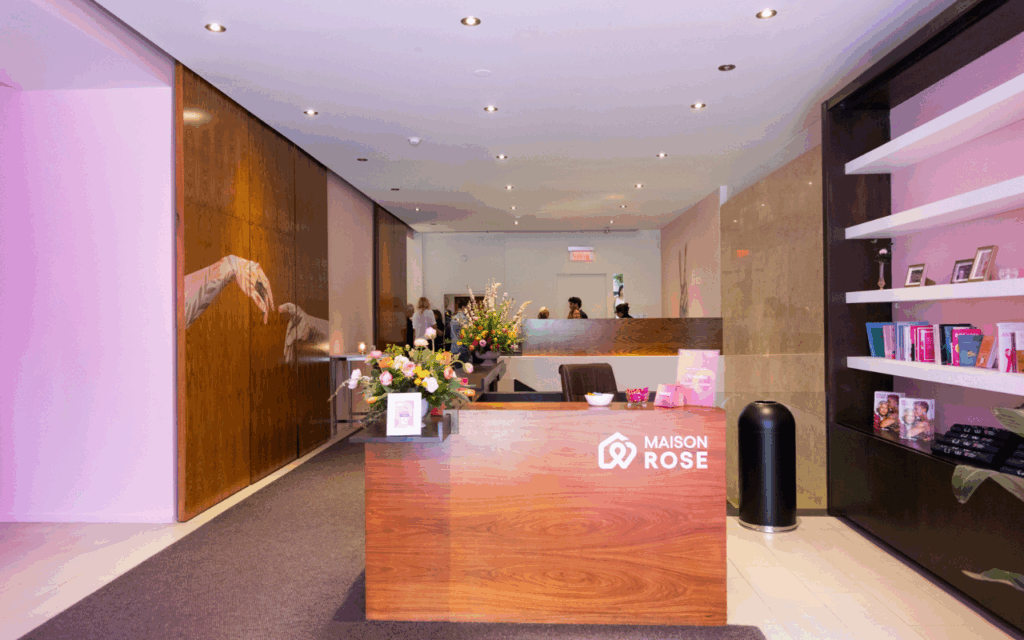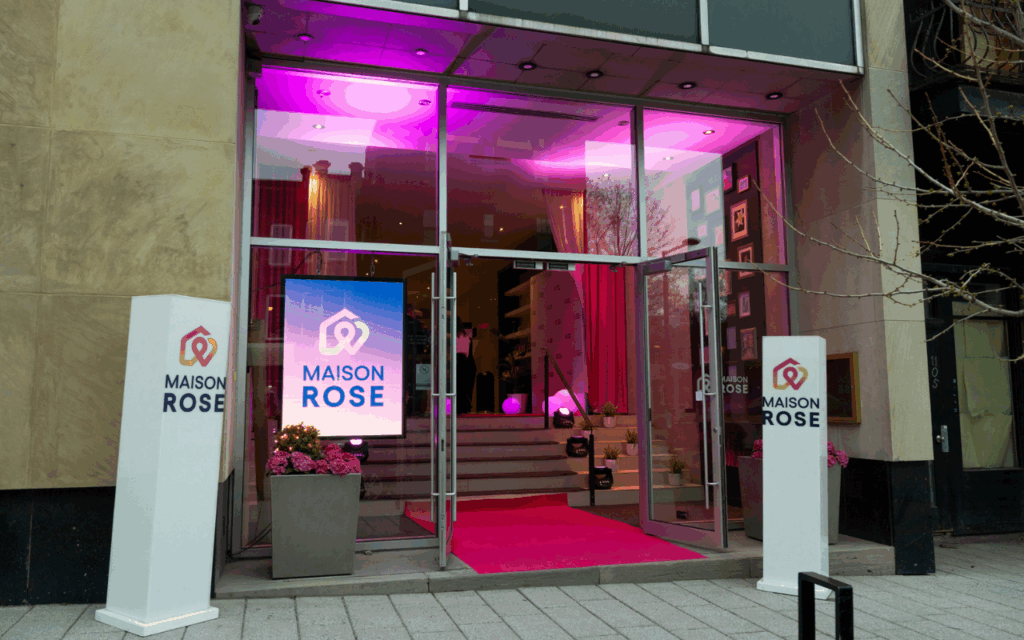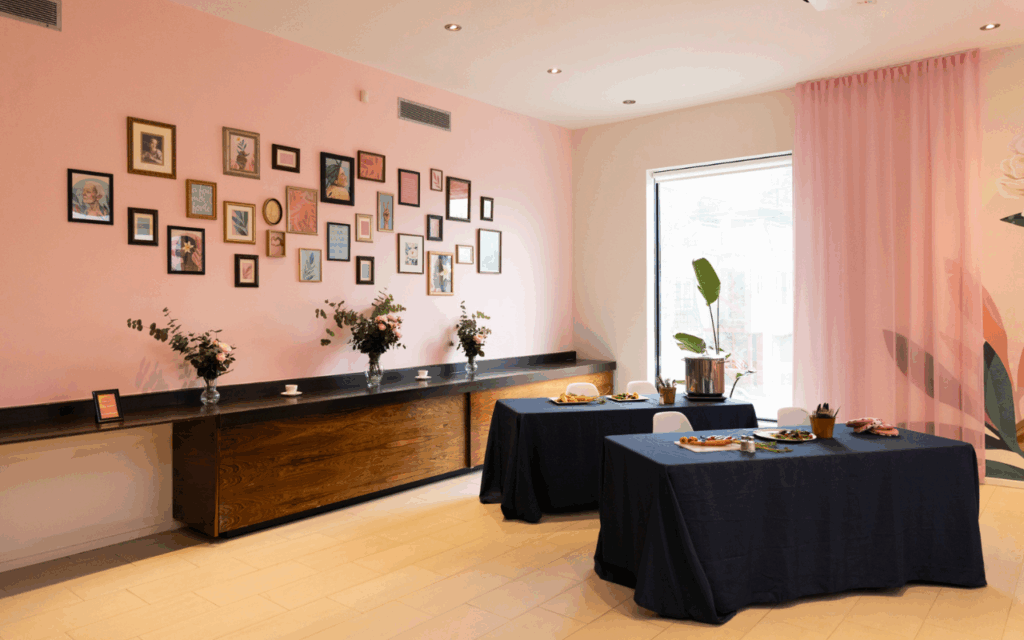
In the heart of Montreal, a quiet revolution in breast cancer care is taking place – one rooted not just in medicine but in support. It’s called the Maison Rose, and its mission is simple yet profound: to help treat the person affected, not just the disease.
Launched in May by the Québec Breast Cancer Foundation, the Maison Rose is the first centre of its kind in North America – a physical space and growing virtual hub where women diagnosed with breast cancer can find continuous support from the moment of diagnosis, through treatment, and long into survivorship.
It’s an idea that Foundation president and CEO Karine-Iseult Ippersiel has been waiting for.

“In Canada, if you are diagnosed with breast cancer, the healthcare system can cure the disease, but there’s no care beyond that,” she said. “And you cannot cure a disease without caring for the human being that is being invaded by it.”
And, as Ippersiel points out, “invaded” is the right word when discussing breast cancer.
A diagnosis doesn’t just affect the body; it can upend every facet of life: mental health, family dynamics, career, finances, and identity. It can leave long-term or even lifelong side effects, especially when treatment includes early menopause, mastectomy, or aggressive medication.
So, Ippersiel set out to find a solution. This search eventually brought her to Paris, France, where holistic-style programming for breast cancer care has been a staple in the country’s healthcare system.

“I was just blown away by what they were doing,” she said. “I knew we had to find a way to recreate that in Canada.”
So, the Maison Rose was born, created to fill those gaps that traditional healthcare misses.
Visitors to the centre will have access to a wide range of programming, all of which is free of charge, explained Ippersiel.
Offerings will include adapted yoga, acupuncture, hypnosis, lymphedema prevention, and mental health counselling. Support groups and workshops will cover topics such as financial planning, intimacy after treatment, chemo-induced cognitive challenges (“chemo brain”), and genetic counselling.
Cooking classes, for example, will teach women how to prepare nourishing meals during treatment when nausea and fatigue make eating a challenge. Meanwhile, monthly talks will address complex topics such as reconstructive surgery options, anxiety over recurrence, and managing family dynamics after a diagnosis.
While Ippersiel acknowledges that these types of programs can be found elsewhere, the Maison Rose is the first place to bring them all together under one roof, taking the onus off of breast cancer patients and their families to find those resources.
“So often with a diagnosis, you get information overwhelm, but there’s no one to talk to about it,” she said. “This is a place where you can just come, deposit your worries, and let someone carry that weight for you.”
Finding community
One of the most powerful aspects of the centre, however, is its emphasis on peer connection.
“Often, you will hear people say, ‘I was alone, I felt so lonely,'” said Ippersiel, who has worked at the foundation for nearly 10 years. “Here, when you walk in the door, everybody that’s in here understands what you’re going through, what you’re about to go through, or what you went through. There’s no judgment, only understanding and support.”

Seeing as the Québec Breast Cancer Foundation represents 18 regions of the province, it was also imperative to Ippersiel and her team that some of the offerings, such as counselling, monthly talks, and access to a social worker, be extended to virtual patients.
“To me, it’s unfair that your postal code dictates what you’re entitled to in the healthcare system,” she explained. “We can also work with smaller organizations in these regions to make sure that people in those communities are looked after and supported.”
With a full roster of programming expected to launch by September 2025, Ippersiel says she is excited to see what other opportunities the Maison Rose can bring to Canada’s healthcare system.
“The day after the opening, we had so many people writing, asking us, ‘When are you opening one in my city?'” she said. “I’m hoping we will find a way to be able to provide the services everywhere, across the board, because there is just so much more work to do.”







